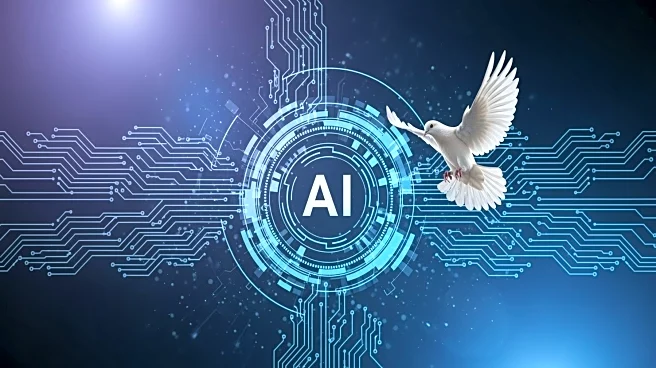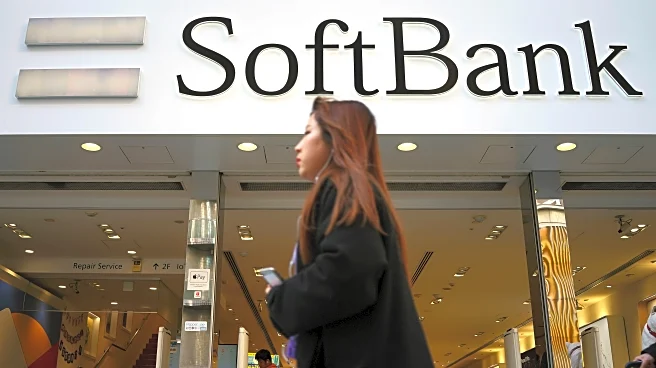What's Happening?
OpenAI has announced a restriction on the creation of AI-generated videos featuring Martin Luther King Jr. using its AI video model, Sora. This decision was made in collaboration with the King Estate following
reports of disrespectful depictions of the civil rights leader. OpenAI is implementing new 'guardrails' to protect historical figures from misuse in AI-generated content. The company emphasized the importance of allowing public figures and their families to control the use of their likenesses. This move comes as OpenAI recently launched Sora 2, its most advanced AI video model, alongside a new social media app that allows users to create AI videos featuring themselves and others. The app has sparked concerns about the balance between free expression and potential misuse, with some users creating disrespectful content involving deceased celebrities.
Why It's Important?
The restriction by OpenAI highlights the ongoing debate over the ethical use of AI in media and the protection of historical figures' likenesses. This decision underscores the need for responsible AI development, particularly in the context of social media, where content can quickly become viral and potentially harmful. The move is significant for the families of historical figures, who may be affected by unauthorized and disrespectful portrayals. It also reflects broader concerns about the impact of AI on privacy and the potential for misuse in creating misleading or offensive content. As AI technology continues to evolve, companies like OpenAI are tasked with navigating the complex balance between innovation and ethical responsibility.
What's Next?
OpenAI's decision to restrict AI video creation of Martin Luther King Jr. may lead to similar actions by other companies as they address ethical concerns in AI-generated content. The company has indicated that authorized representatives of other historical figures can request similar restrictions. This could prompt a broader industry shift towards more stringent controls over the use of AI in media. Additionally, OpenAI's move to an 'opt-in' model for copyrighted material suggests a trend towards giving rightsholders more control over AI-generated content. As the technology develops, stakeholders including tech companies, legal experts, and civil rights groups may engage in discussions to establish clearer guidelines and regulations for AI use.
Beyond the Headlines
The restriction on AI-generated videos of Martin Luther King Jr. raises deeper questions about the intersection of technology and cultural heritage. It highlights the ethical considerations in preserving the dignity and legacy of historical figures in the digital age. The decision may influence how society views the role of AI in shaping narratives and the importance of maintaining respect for cultural icons. Furthermore, it could lead to discussions on the legal implications of AI-generated content and the rights of individuals and their families in controlling their digital representations.











